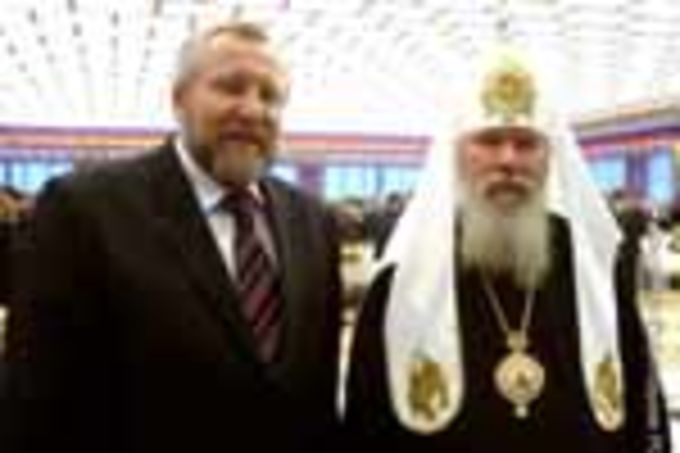Sergey Ryakhovsky, Bishop of the Charismatic, loosely-structured, 2.000-congregation “Associated Russian Union of Christians of Evangelical-Pentecostal Faith", has voiced strong support in the past for the Russian administrations of Putin and Medvedev. He has on that basis defended Protestant interests against nationalists bent on eliminating the evangelical witness from Russia.
Russian Protestant leader attends parliamentary sessions in Strasbourg
Commentary M o s c o w -- Sergey Ryakhovsky (Moscow), Bishop of the Charismatic, loosely-structured, 2.000-congregation “Associated Russian Union of Christians of Evangelical-Pentecostal Faith", has voiced strong support in the past for the Russian administrations of Putin and Medvedev. He has on that basis defended Protestant interests against nationalists bent on eliminating the evangelical witness from Russia. A polemic from Ryakhovsky in late August illustrates this stance well. In it he attacked the fiery Orthodox cleric Alexander Dvorkin (Moscow), regarded by some as a specialist on sects and the cults, as an agent of US-foreign policy. Dvorkin, a naturalised US-citizen, had spent the two decades prior to 1990 in the USA, studied Orthodox theology there and worked a while for both Radio Free Europe and Radio Liberty. The Bishop stated: “The US-administration operates with a double standard. Under the cover of its citizen, the Orthodox zealot Dvorkin, it lashes out in Russia with all of its strength against Protestantism and incites hatred against it. In return, Russia is then accused year-in-year-out of infringing upon human rights and freedom of conscience. In Georgia though, the very same US-administration does not even notice the systematic repression of (Protestant) believers by that government.”
As a member of the “Council for Cooperation with Religious Organisations at the Seat of the Russian President”, Bishop Ryakhovsky was a part of the Russian delegation to the Fall sessions of the Council of Europe’s Parliamentary Assembly. They were held in Strasbourg/France from 29 September to 3 October. In a description published on 22 October he wrote: “The general atmosphere among the parliamentarians was, to put it mildly, not exactly in favour of Russia. And it was very obvious that European mass-media intended to ignore our delegation. When our delegates spoke with conviction, translators tended to swallow the words. It was highly apparent that in the informational realm, we Russians still have a great deal to learn. I was in Strasbourg for the first time and we seemed to be aliens there.”
“The Western position on truth is more than simply anti-Russian. It places Russia in the position of the aggressor - or even worse. We are not understanding each other. Emotions are laid bare; everyone is giving vent to his/her pain.”
Ryakhovsky reported that the Georgian delegation in Strasbourg consisted of young, highly-educated persons speaking excellent English. “These people were trained in the period after the collapse of the Soviet Union along with its tradition of international friendship. They’re a part of the new generation accustomed only to anti-Russian rhetoric; they do not remember our country. So it’s important for us to understand why they are as they are. It’s terrible that visa requirements prevent us from becoming acquainted.”
Ryakhovsky concluded: The West “has a different mentality and other institutions for realising democracy. But I have seen at the Council sessions that we no longer dare rely strictly on our own truths, for our truths often do not take the views of others into consideration. We humans possess colossal means for hearing and for being heard. We live mutually in one common house called ‘earth’.”
Rev. Vitaly Vlasenko (Moscow), Director for External Relations for the Russian Union of Evangelical Christians-Baptists (RUECB), responded: “We Russian Baptists cannot forget the fact that we are also Russian citizens. We are co-responsible for the work of our government. We are patriots – but not at the expense of other nations, and not at the expense of the historical and present truth. We along with Sergey Ryakhovsky want to help our nation and its people flourish. Bishop Ryakhovsky cannot speak for the RUECB. And sometimes we suspect that his statements about the West are too belligerent. Yet much of what he said about Strasbourg is understood by our people - these sentiments are not uncommon among Russian Protestants. It the mass media are a problem, then we need in both East and West to turn off the television, log-off the Internet and start talking.”
Department for External Church Relations, RUECB
Photo: Ryakhovsky with the Metropolitan Alexey II.
